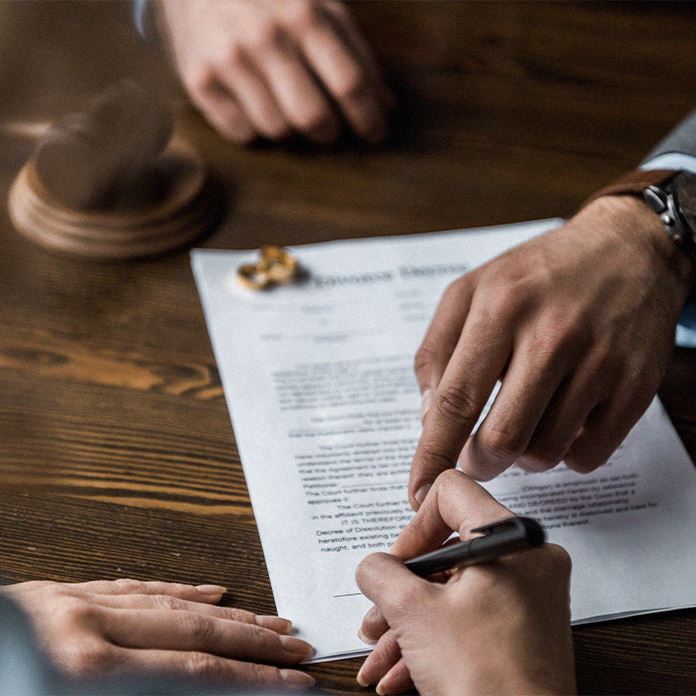
Carmel Restraining Order Attorney
Indiana Restraining Order Laws & Order of Protection
A protective order is a civil (not criminal) order that restricts the type of contact an individual, known as the “respondent,” may have with the person requesting the protective order, known as the "petitioner." If you wish to report a crime, the most appropriate course of action is to contact the local police or prosecutor to report the offense and events involved. Our Carmel restraining order lawyers at Roberts Means Roncevic Kapela can assist you. With decades-long experience in family law matters, we are dedicated to ensuring you and your family are protected.
Most commonly, a protective order requires the respondent to refrain from contacting the petitioner or members of the petitioner's household. Along with prohibiting contact, the court may enter additional orders. The court can require the respondent to vacate a residence, restrict possession of firearms, and enforce the payment of child support.
The court does have the authority to create certain exceptions to the general prohibition on contacting the petitioner. The court may restrict how the parties communicate and the subjects the parties are able to discuss. For example, they may limit their form of communication to email and require that they only talk about child drop off and pick up times.
Need to get a protective order in place today? Call our Carmel restraining order attorneys at (888) 211-3888 also serving Indianapolis and all of Central Indiana!
Who Can a Protective Order Be Obtained Against in Indiana?
A protective order may be obtained against a family or household member in certain situations.
Indiana statute defines a family or household member as anyone who:
- Is a current or former spouse or partner;
- Was formerly or currently dated;
- Is engaged or was engaged in a sexual relationship;
- Is related by blood or adoption;
- Is related or was related by marriage;
Has an established or previously established legal relationship:
- as a guardian
- as a ward;
- as a custodian;
- as a foster parent; or
- in a capacity similar to those listed.
- A person who has a child in common; or
- A minor child of a person in a relationship described above.
A protective order provides law enforcement agencies the ability to intervene in a potentially dangerous situation at an earlier stage than might otherwise be possible. For instance, if a family or household member walks in front of your house or makes vague threats, a crime may not have been committed. However, if a protective order prohibiting contact has been entered, a law enforcement officer would likely be able to arrest the offending person for such an action. In addition, if a protective order is violated, the Petitioner may seek civil remedies for contempt of the order or request that criminal charges be filed.

Why Choose RMRK?
Qualities that Break the Stereotype
-
Placing a focus beyond the case to understand our clients’ objectives and big-picture goals.
-
Listening to and collaborating with our clients to develop a shared strategic vision.
-
Accomplished attorneys who are annually rated by their peers for inclusion on the prestigious list of Indiana SuperLawyers.
-
Unafraid to make difficult decisions and eager to confront the challenges facing our clients.

How to Obtain a Protective Order in Indiana
Any individual may obtain a protective order without cost if they are the victim of domestic violence, stalking, or a sex offense. The process begins by completing a petition and filing it with the appropriate court. Once the form is completed, a judge will evaluate the request and either grant or deny the petition. A protective order may be obtained ex parte, which means the respondent does not need to be present for the petition to be granted.
However, if the protective order is entered, the respondent does have the right to request a court hearing within 30 days of receiving notice of the protective order. If you have any questions about where to apply for a protective order, you should contact one of our Carmel and Indianapolis restraining order lawyers or the appropriate county clerk's office. We offer consultations for those in need. Call us at (888) 211-3888.
Indiana has standard forms for protective order cases which can be found at https://www.in.gov/courts/iocs/publications/po-forms/.